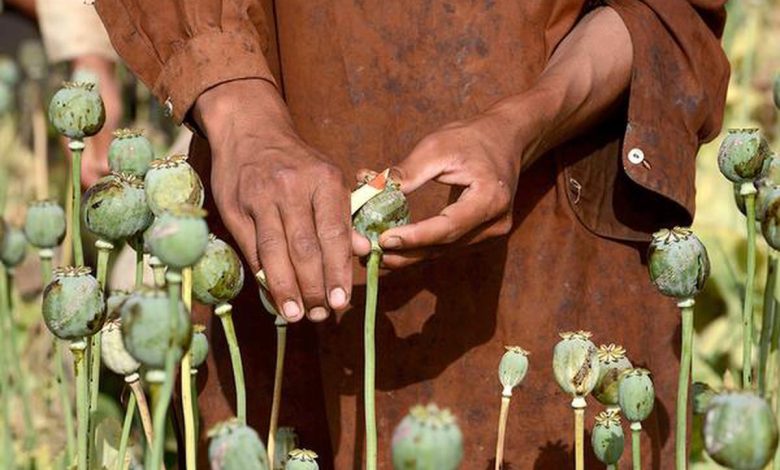Myanmar Emerges as World’s Largest Opium Source Amid Afghan Decline, UN Reports

In a startling revelation, Myanmar has now claimed the dubious distinction of being the world’s largest source of opium, surpassing Afghanistan, according to a report released by the United Nations on Tuesday. The significant decline in opium cultivation in Afghanistan, attributed to a Taliban-imposed drug ban in 2022, has prompted a global shift in opium supply to Myanmar. The UN Office on Drugs and Crime (UNODC) report highlights that the political, social, and economic upheaval following Myanmar’s 2021 coup has driven many to turn to poppy farming as a means of livelihood.
The report indicates a staggering 95% decrease in opium cultivation in Afghanistan, a traditional opium-producing region, resulting in a remarkable shift in global opium dynamics. With the decline in Afghanistan’s opium production, Myanmar has witnessed an alarming surge in opium cultivation, leading to a transformation in its status within the global drug trade.
Myanmar farmers are now reaping substantial financial gains, with earnings from opium poppy farming soaring by approximately 75%. The average prices of opium have reached $355 per kilogram, and the cultivation area has expanded by 18% year on year, escalating from 40,100 to 47,000 hectares. This increase has propelled the potential yield to its highest level since 2001, as stated by the UNODC.
Jeremy Douglas, the UNODC Regional Representative, emphasized that the economic, security, and governance disruptions resulting from the military takeover in February 2021 have propelled farmers in remote areas toward opium cultivation as a means of survival. The socioeconomic instability in Myanmar has created an environment conducive to the flourishing opium trade, providing an alternative income source for those affected by the tumultuous political landscape.
Opium cultivation areas have experienced the most significant expansion in Myanmar’s border regions, particularly in northern Shan State, followed by Chin and Kachin states. The UNODC report notes a 16% increase in yield, reaching 22.9 kilograms per hectare, attributable to more sophisticated farming practices.
Concerningly, the ongoing conflict between the Myanmar military and armed ethnic-minority groups is predicted to further accelerate the expansion of opium cultivation, according to Jeremy Douglas. The report underscores the potential consequences of the surge in hostilities on the already precarious situation, as opium becomes an increasingly attractive option for those seeking economic stability in conflict-ridden areas.
The Myanmar junta has not responded to requests for comments on this issue, leaving questions regarding the government’s stance and potential interventions unanswered.
The expansion of opium cultivation in Myanmar contributes to the growth of an illicit economy in the country, which includes not only opium production but also high levels of synthetic drug manufacturing and trafficking. Additionally, Myanmar is grappling with various criminal enterprises, ranging from money laundering to online scam centers run by organized crime groups.
As the international community grapples with the implications of Myanmar’s newfound status as the leading source of opium, there is a pressing need for coordinated efforts to address the multifaceted challenges posed by the country’s evolving role in the global drug trade. The UNODC report serves as a stark reminder of the interconnected nature of geopolitical events, illicit economies, and their impact on vulnerable communities.





